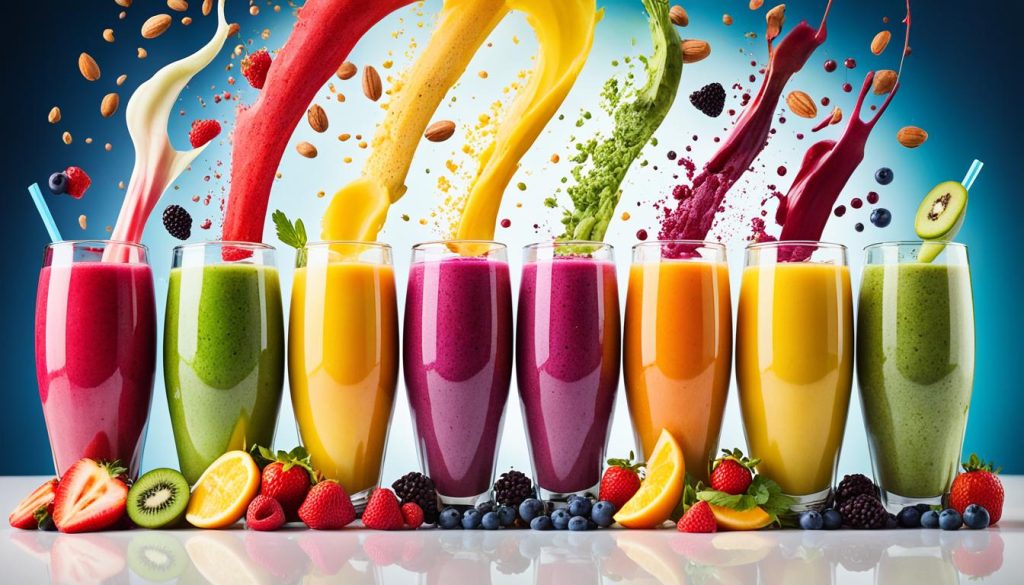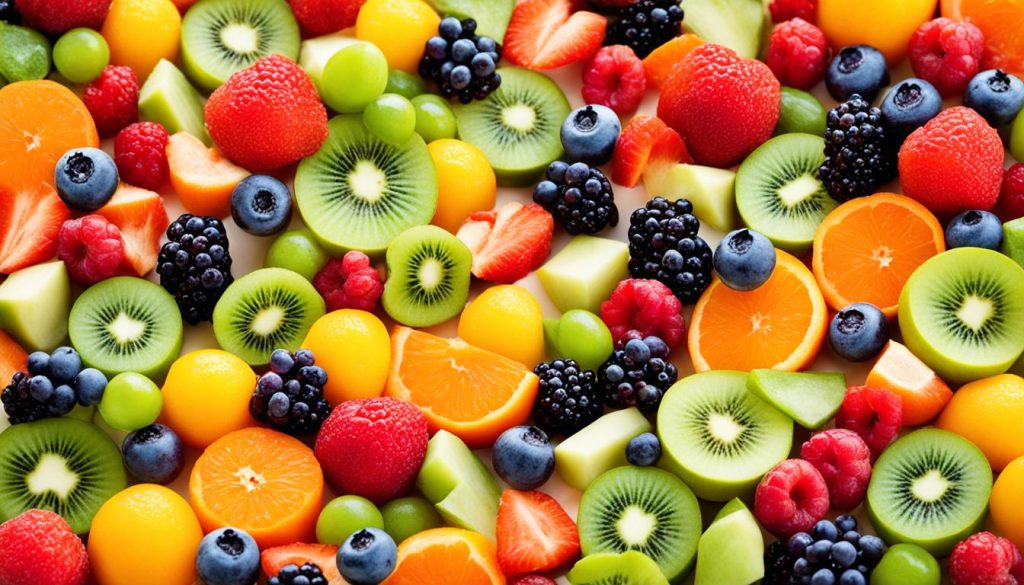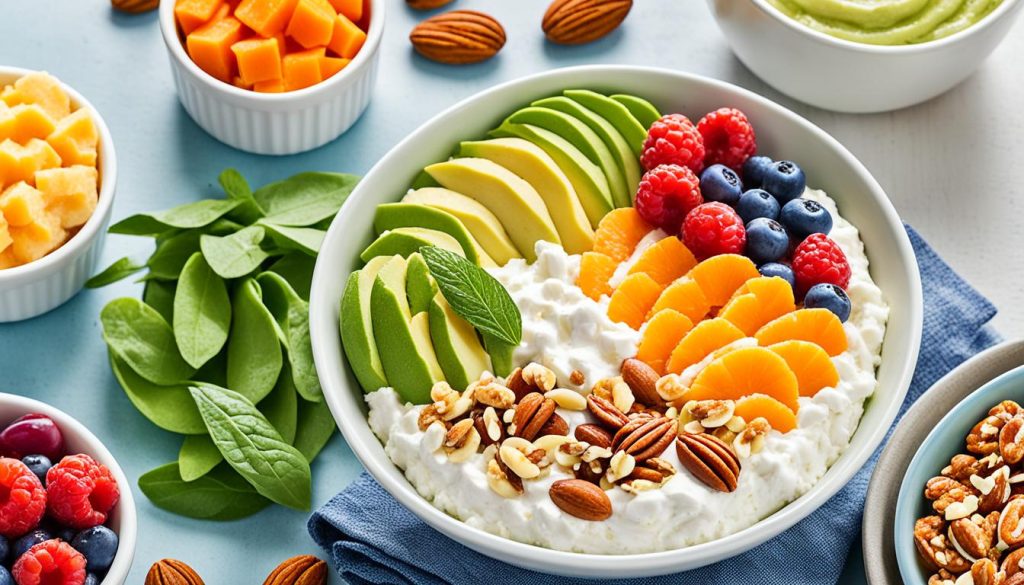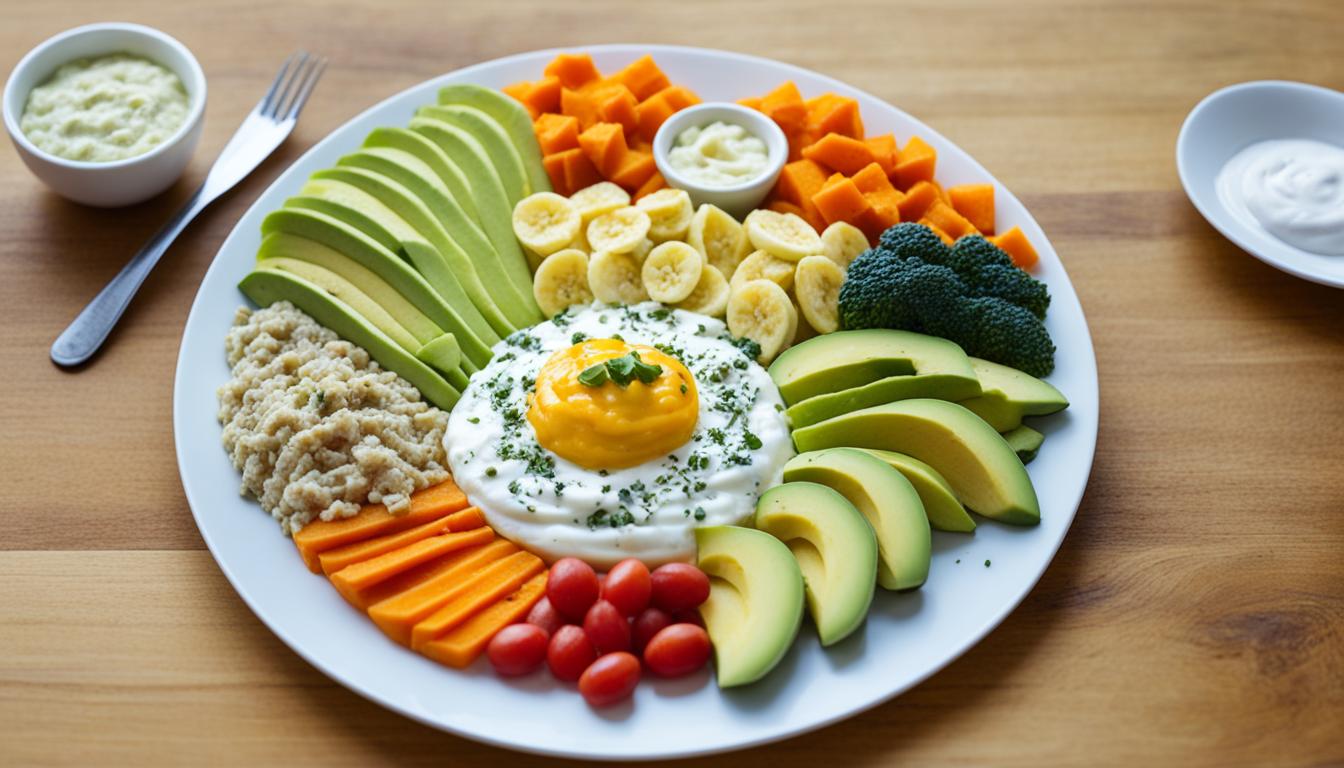Soft Foods After Tooth Extraction 50 Easy Options
Getting a tooth pulled, like wisdom teeth removal, means you need to eat carefully. It’s key to choose soft foods to help you heal and avoid problems at the spot where the tooth was removed. I know how important it is to eat foods that are easy on your mouth but still give you the nutrients you need.
This article lists 50 tasty and easy-to-eat soft foods great for recovering from a tooth extraction. These foods will help you stay full and support healing. They also make you feel better during your recovery. Let’s check out these yummy and helpful food options together!
Table of Contents
Key Takeaways
- Soft foods are essential for a smooth recovery after tooth extraction
- Eating the right foods can help avoid complications at the extraction site
- 50 delicious and nutritious soft food options are provided in this article
- These foods promote healing and reduce discomfort during recovery
- Nourishing your body with gentle foods is crucial after oral surgery
Understanding the Need for Soft Foods Post-Extraction
After a tooth extraction, what you eat is key to healing right. Eating the right foods helps with healing and keeps you from facing problems. We’ll look into why soft foods are important after tooth removal and how they help with recovery.
The Healing Process After Tooth Removal
Your body starts a healing process after a tooth extraction. It repairs the damaged tissue and forms a blood clot at the site. This healing can take days to weeks, based on the extraction’s complexity and your health. It’s important to eat carefully during this time to help healing.
Why Soft Foods Are Essential for Recovery
Soft foods are key for healing for several reasons:
- They help prevent the blood clot from getting dislodged. Hard foods can cause dry sockets, a painful condition. Soft foods lower this risk.
- They are gentle on the wound, reducing irritation and pain.
- They’re easy to chew, making eating easier when you’re swollen and uncomfortable.
Choosing the right soft foods is key to providing your body with the necessary nutrients to support the healing process while being easy to consume and digest.
When planning your diet after extraction, pick soft foods full of nutrients. These foods help with healing and give you important vitamins and minerals. By eating soft foods and following good aftercare, you can recover more comfortably and smoothly.
Preparing for Your Post-Extraction Diet
Before your tooth extraction, planning your post-surgery diet is key. This helps you recover smoothly and keeps you well-nourished. Having easy-to-chew meals ready can reduce stress and effort during this time.
Some important items to keep handy include:
- Soft fruits like bananas, peaches, and melons
- Cooked vegetables such as sweet potatoes, squash, and carrots
- Eggs for soft scrambles or omelets
- Yogurt, cottage cheese, and other soft dairy products
- Broth or stock for soups and stews
- Nut butters for added protein and healthy fats
Also, prepare meals in advance to make things easier. This is especially helpful when you’re tired or sore after your surgery. Think about making pureed soups, smoothies, or liquid meals that you can easily reheat or blend. Having these options ready will keep you nourished without overstraining your mouth.
Planning ahead and having the right foods can greatly improve your recovery after extraction. Don’t hesitate to ask for help from family or friends in preparing meals if needed.
Remember to consider any dietary restrictions or allergies when planning your diet. Talk to your dentist or healthcare provider about your needs before your extraction. With some preparation and thought, you can ensure a successful and comfortable recovery after your tooth extraction.
Smoothies and Shakes: Nutritious and Delicious Options
After a tooth extraction, eating soft foods that are easy to chew is key. Smoothies and shakes are perfect because they don’t need much chewing and are full of nutrients. They help you stay full and keep a balanced diet while you heal.

Fruit and Vegetable Smoothie Recipes
Fruits and veggies are packed with vitamins, minerals, and fiber, which are important for healing. Choose soft fruits like bananas, mangoes, peaches, and berries for your smoothies. They blend well and add a sweet taste. Add leafy greens like spinach or kale for more nutrients. These greens are easy on your mouth and full of vitamins and minerals.
Here are some tasty and healthy soft food recipes for fruit and vegetable smoothies:
- Banana-Spinach Smoothie: Blend ripe bananas, fresh spinach, almond milk, and a touch of honey for a creamy, nutrient-dense drink.
- Mango-Avocado Smoothie: Combine ripe mangoes, avocado, coconut water, and a squeeze of lime for a tropical, fiber-rich treat.
- Berry-Beet Smoothie: Mix together soft berries (such as strawberries or raspberries), cooked beets, coconut milk, and a hint of vanilla for a vibrant, antioxidant-packed smoothie.
Protein-Packed Shake Ideas
Protein is key for healing after tooth extraction. Adding protein-rich ingredients to your shakes helps meet your body’s needs. Great protein sources include Greek yogurt, silken tofu, nut butter, and protein powders.
Here are some protein-packed shake ideas to help you recover:
- Greek Yogurt-Berry Shake: Blend Greek yogurt, soft berries, milk, and a drizzle of honey for a creamy, protein-rich treat.
- Chocolate-Peanut Butter Shake: Combine silken tofu, cocoa powder, peanut butter, banana, and milk for a decadent, satisfying shake.
- Green Protein Shake: Mix together spinach, ripe pear, protein powder, almond milk, and a sprinkle of cinnamon for a nutritious, protein-packed drink.
When making smoothies and shakes, pay attention to the consistency. Blend until smooth and free of chunks for easy eating and comfort. These soft snacks are tasty and give your body the nutrients it needs to heal after a tooth extraction.
Soups and Broths: Comforting and Nourishing
After a tooth extraction, soups and broths are great for comfort and nutrition. They’re easy to eat and help with hydration. Plus, they’re full of nutrients that are good for you. These foods are also gentle on the area where the tooth was removed.

Creamy Soup Recipes for Easy Eating
Creamy soups are a top pick for me after a tooth extraction. Soups like butternut squash or potato leek are tasty and easy to eat. I puree them until they’re smooth, so they’re easy to swallow while healing.
My favorite creamy soup recipe is a simple yet flavorful butternut squash soup. I start by roasting the squash, then blend it with sautéed onions, garlic, and a touch of cream. The result is a velvety smooth soup that’s both comforting and nutritious.
Nutritious Bone Broth Variations
Bone broth is another key part of my diet after an extraction. It’s made from animal bones and is full of nutrients that help with healing. These nutrients include collagen, amino acids, and minerals. Drinking bone broth often helps with tissue repair and boosts my immune system.
I like to try different bone broth recipes to keep things interesting:
- Classic chicken bone broth with fresh herbs
- Beef bone broth with root vegetables
- Turkey bone broth with ginger and turmeric
- Mushroom-infused bone broth for an umami flavor boost
Adding soups and broths to my diet after an extraction helps me heal well. These soft foods are easy on my mouth and keep me well-fed. They also make sure I get the nutrients I need to recover fully.
Soft Fruits and Vegetables: Gentle on Your Mouth
After a tooth extraction, eating soft fruits and vegetables is key. These foods are full of vitamins, minerals, and fiber. They are also easy on the healing area, helping you recover smoothly. Adding a mix of soft fruits and vegetables keeps your diet balanced and your meals easy to chew.

Soft fruits like ripe bananas, peaches, pears, and melons are great choices. You can mash or puree them, making them perfect for healing. They taste good, are refreshing, and won’t irritate your mouth.
Vegetables are also crucial after an extraction. Opt for soft, cooked ones like sweet potatoes, carrots, and squash. You can mash, puree, or add them to soups and smoothies. This variety keeps your meals tasty and fulfilling.
| Soft Fruits | Soft Vegetables |
|---|---|
| Ripe bananas | Mashed sweet potatoes |
| Peaches | Pureed carrots |
| Pears | Butternut squash soup |
| Honeydew melon | Creamed spinach |
Remember, the key is to choose fruits and vegetables that are soft, easy to chew, and gentle on your mouth as you recover from your tooth extraction.
Adding a variety of soft fruits and vegetables to your diet supports healing and ensures you get the nutrients you need. These foods make eating easy and comforting during recovery.
Dairy and Non-Dairy Alternatives for a Balanced Diet
After getting a tooth extracted, eating right is key for my recovery. I look for soft foods that are full of nutrients like protein, calcium, and vitamin D. These help with healing, keeping bones strong, and feeling good overall.
Yogurt and Cottage Cheese: Protein-Rich Options
Yogurt and cottage cheese are great soft foods that are packed with protein. Greek yogurt has a lot of protein, which helps with healing. They’re easy on my mouth and taste creamy and satisfying.
I like adding fruits or honey to cottage cheese for flavor. It makes my soft food meals more interesting.

Plant-Based Milk and Yogurt Alternatives
If I can’t have dairy, I choose non-dairy options like soy milk, almond milk, and coconut yogurt. They have the same nutrients as dairy but are easier on my stomach. I love the many flavors of non-dairy kinds of milk and yogurts.
This lets me make tasty and healthy soft snacks and smoothies. I pick dairy and non-dairy foods that are high in protein, calcium, and other important nutrients. I avoid foods with a lot of sugar and artificial stuff to stay healthy. Mixing dairy and non-dairy foods helps my body heal and get strong after tooth extraction.
Soft Grains and Starches: Satisfying and Substantial
After a tooth extraction, eating easy-to-chew meals is key. Soft grains and starches are great because they’re easy on the mouth and help with healing. They’re perfect for those recovering from tooth extractions.
Adding cooked pasta, rice, quinoa, and oatmeal to your diet can make you feel full and give you energy. These grains can be made very soft and mixed with sauces or broths for extra flavor. For breakfast, try oatmeal with mashed banana and honey for a comforting meal.
Mashed potatoes, polenta, and risotto are also great choices. You can add cheese, herbs, or pureed veggies to them for extra taste and nutrition. A creamy polenta or buttery mashed potatoes can be a great meal while you’re recovering.
I found that incorporating soft grains and starches into my diet after my tooth extraction made the healing process much more manageable. Not only did they provide me with the energy I needed, but they also allowed me to enjoy a variety of flavors and textures without compromising my comfort.
Here are some tips for making soft grains and starches:
- Cook grains until they are very soft and easily mashable with a fork
- Use broth, milk, or sauces to add moisture and flavor to your grains
- Experiment with different herbs, spices, and cheese to create a variety of tastes
- Puree vegetables and incorporate them into your starches for added nutrition
| Soft Grain | Cooking Time | Serving Suggestions |
|---|---|---|
| Oatmeal | 10-15 minutes | Top with mashed banana, honey, or pureed berries |
| Quinoa | 15-20 minutes | Mix with soft-cooked vegetables and mild cheese |
| Rice | 20-30 minutes | Combine with a creamy sauce or broth for added flavor |
| Pasta | 10-15 minutes | Toss with a smooth tomato sauce or pesto |
Adding soft grains and starches to your diet after an extraction helps with healing and gives you the nutrients you need. With so many options, you can make meals that are both satisfying and tailored to your needs during recovery.
Eggs: Versatile and Easy to Prepare
After a tooth extraction, eggs are a top choice for me. They’re packed with protein and easy to make. Eggs can be cooked in many ways, making them perfect for when I don’t want to chew much.
Scrambled Eggs and Omelets
Scrambled eggs or omelets are my go-to during recovery. They’re soft and easy to chew, ideal for a sensitive mouth. I add cheese, soft veggies, or herbs for flavor and nutrition. Here are some ingredients I love:
- Shredded cheddar or mozzarella cheese
- Finely chopped spinach or kale
- Diced tomatoes or bell peppers
- Fresh herbs like parsley, basil, or chives
Soft-boiled and Poached Eggs
Soft-boiled or poached eggs are also great for me when I’m healing. They’re tender and easy to eat. I like them with soft bread, mashed avocado, or pureed veggies. Here are some of my favorite pairings:
| Egg Preparation | Pairing Suggestion |
|---|---|
| Soft-boiled egg | Whole grain toast soldiers |
| Poached egg | Mashed avocado on soft bread |
| Soft-boiled egg | Pureed sweet potato or butternut squash |
| Poached egg | Soft polenta with grated Parmesan cheese |
Eggs help me get the protein and nutrients I need to heal. They make eating after a tooth extraction easy and tasty. With a bit of creativity, soft food recipes can be delicious and fulfilling.
50 Soft Foods to Eat After Tooth Extraction
After a tooth extraction, eating soft foods is key for a smooth recovery. Here are 50 tasty and healthy soft food recipes great for recovering from wisdom teeth removal:
- Smoothies (banana, avocado, spinach, yogurt)
- Mashed potatoes
- Scrambled eggs
- Yogurt
- Applesauce
- Pureed soups (butternut squash, tomato, pumpkin)
- Soft-cooked vegetables (carrots, peas, green beans)
- Cottage cheese
- Hummus
- Soft-cooked rice
- Baked sweet potatoes
- Refried beans
- Soft-cooked pasta
- Quinoa
- Soft-cooked lentils
- Mashed avocado
- Ricotta cheese
- Soft-scrambled tofu
- Polenta
- Mashed bananas
- Soft-cooked fish (salmon, cod)
- Soft, moist muffins
- Pudding
- Soft-cooked oatmeal
- Mashed cauliflower
- Baked acorn squash
- Cream of wheat
- Mashed sweet potatoes
- Soft-cooked chicken
- Guacamole
- Soft-cooked peas
- Gelatin desserts
- Soft, spreadable cheeses
- Mashed black beans
- Soft, cooked ground meat
- Mashed pears
- Soft, cooked carrots
- Creamy nut butters
- Mashed butternut squash
- Soft, cooked eggplant
- Creamed spinach
- Mashed chickpeas
- Soft, cooked zucchini
- Mashed parsnips
- Soft, cooked beets
- Mashed lima beans
- Soft, cooked pumpkin
- Mashed turnips
- Soft, cooked mushrooms
- Mashed kidney beans
- Soft, cooked spinach
It’s important to listen to your body and eat foods that feel good during your recovery. As you get better, you can slowly add solid foods back into your diet. Always talk to your dentist or oral surgeon if you have any questions about what to eat during your recovery.
Eating a balanced diet of soft foods is crucial for promoting healing and maintaining overall health during your recovery from tooth extraction.
Adding these soft food recipes to your diet helps you get the nutrients you need while your mouth heals. With a bit of creativity and planning, you can enjoy tasty meals during your recovery from wisdom teeth removal.
Tips for Maintaining a Balanced Diet During Recovery
After a tooth extraction, eating soft foods is key to healing. It’s important to eat a balanced diet to help your body recover. This means getting enough protein, fiber, vitamins, and minerals. By choosing a variety of soft foods, you can make sure you get the nutrients you need.
Incorporating Protein and Fiber
Protein is crucial for healing and keeping your immune system strong. Good sources of protein include scrambled eggs, Greek yogurt, cottage cheese, and mashed legumes. Fiber is also important for your digestive health. You can get it from soft cooked veggies, pureed fruits, and cooked oatmeal or quinoa.
Adding these foods to your diet after tooth extraction will help your body heal.
Staying Hydrated with Water and Herbal Teas
Drinking enough water is key to healing. It helps carry nutrients and remove waste. Try to drink lots of water each day. Herbal teas like chamomile or peppermint can also help.
These teas are caffeine-free and may reduce inflammation and help you relax. Drinking plenty of water and herbal teas can aid healing and prevent constipation, which some pain medicines can cause.
FAQ
How long should I stick to a soft food diet after tooth extraction?
You should eat soft foods for at least 24 to 48 hours after tooth extraction. If your surgery was complex or your healing is slow, you might need soft foods for up to a week. Always check with your dentist or oral surgeon for advice tailored to you.
Can I eat ice cream after tooth extraction?
Ice cream is soft, but it’s not the best choice right after tooth extraction. The cold can make the area around the tooth hurt. Also, ice cream’s sugar might slow down healing. Wait a few days and eat it in small amounts if you really want it.
Are there any foods I should avoid after tooth extraction?
Yes, avoid hard, crunchy, or chewy foods like nuts, chips, and candy. Also, spicy, acidic, or hot foods can bother the area where the tooth was removed. Don’t use straws because they can dislodge the blood clot and cause dry socket.
How can I ensure I’m getting enough nutrients while on a soft food diet?
Make sure to eat a mix of soft foods from all food groups. Choose protein-rich foods like scrambled eggs, yogurt, and pureed legumes. Add fiber with oatmeal and mashed fruits and vegetables. Smoothies and shakes can also help you get the nutrients you need.
Can I drink coffee or alcohol after tooth extraction?
Avoid coffee, alcohol, and other hot or fizzy drinks for the first 24 to 48 hours. These can make healing slower and cause more problems. Only have these drinks after your dentist says it’s okay, and drink them in small amounts.
What can I do if I experience discomfort or pain while eating after tooth extraction?
If eating hurts, try eating cooler or room-temperature foods. Choose soft foods that are easy to chew and avoid anything that might get stuck. If the pain doesn’t go away or gets worse, call your dentist or oral surgeon for help and advice.
There are no reviews yet. Be the first one to write one.







